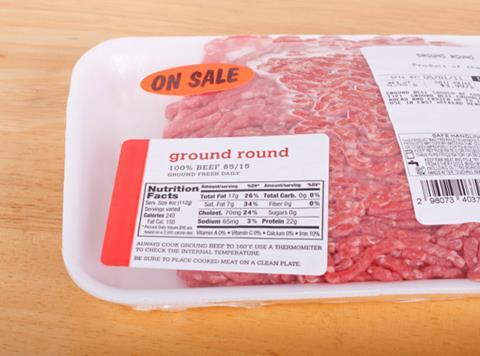
The responsibility for policy on compositional labelling should revert from Defra to the Food Standards Agency to better protect consumers and industry from food crimes, Professor Chris Elliott’s review into the UK food system has recommended.
Labelling moved from the FSA to Defra as part of changes introduced by the coalition government in 2010, but Elliott said labelling policy on food composition should now move back to ensure there were closer links between policy and the FSA’s operational activities.
Defra had a justifiable interest in country-of-origin labelling as well as policy on EU protected food names and should keep control of those areas, Elliott said. “Research into authenticity and the development of information to support clear labelling about composition, however, need to have closer links to delivery. I suggest that the FSA is the most appropriate body for this and should take back the lead now, but its staff must work closely with Defra and industry in doing so.”
“I was surprised during this review to discover that there are no arrangements in place for regular high-level round table meetings between the FSA chair and both the secretaries of state for Health and for Defra”
Chris Elliott
The horsemeat scandal reignited the debate about whether the 2010 machinery of government changes – which saw many of the FSA’s key policy responsibilities redistributed to Defra and the Department of Health – had weakened the FSA and made it more difficult for it to respond effectively to the crisis.
Aside from compositional labelling, Elliott is not recommending any other responsibilities be returned to the FSA, but he said changes to its governance arrangements were needed to make it more robust.
This included forging closer links and more regular exchanges with key government departments, such as Defra and the DH. “I was surprised during this review to discover that there are no arrangements in place for regular high-level round table meetings between the FSA chair and both the secretaries of state for Health and for Defra,” he said.
Putting in place arrangements for such meetings would not undermine the FSA’s independence but would “help with my concerns that the FSA has become a rather isolated and inward-looking organisation”, Elliott added.
New food crime unit
To better equip the UK to deal with cases of serious food crimes, Elliott also recommended that a dedicated food crimes unit be set up within the FSA, which would act as the lead agency on future cases. The new unit would have the status of a non-Home Office police force and have powers of entry and powers of arrest.
Setting up such a unit would create greater clarity about who was in charge of investigations into food crimes, and would boost the FSA’s knowledge and expertise in fighting food crimes and dealing with serious organised crime networks, Elliott said.
Once set up, the new FSA food crime unit should also take over from the Intellectual Property Office in being the UK intelligence lead for Operation Opson, a pan-European operation to fight food fraud co-ordinated by Interpol and Europol.
Information sharing
In addition to clearer enforcement responsibilities, the industry had to be prepared to share sensitive information with the FSA and other parts of government, if future food crimes were to be prevented, Elliott said. However, this did not happen at the moment because the industry was concerned any information it shared might become public or fall into the hands of competitors.
That was why a new industry information service was needed, which would confidentially gather information and data from industry, “sanitise” it to make it unattributable before sharing it with the FSA, government and the rest of the industry, Elliott said.
The service would be funded through subscriptions and would have “safe haven” status, including not being subject to Freedom of Information requests.
Meanwhile, the FSA should take the lead government role in collecting, analysing and disseminating relevant information, and should also support the creation of a “national food economic intelligence hub”, which would analyse commodity price trends to identify where possible opportunities for fraudsters might arise.
Read this: Risky animal by-products could get into UK food chain: Elliott







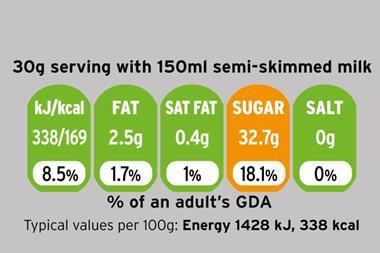
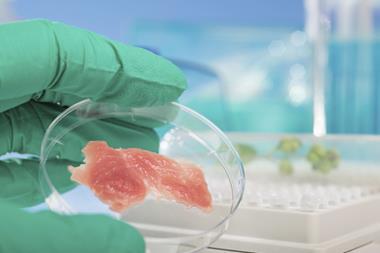
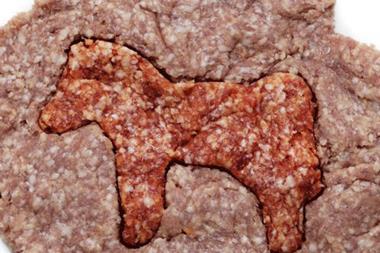
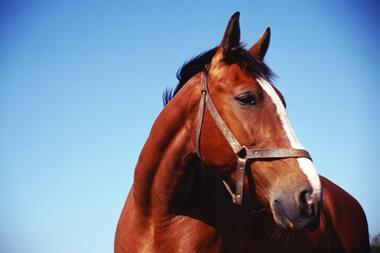
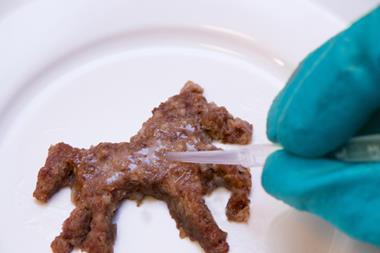
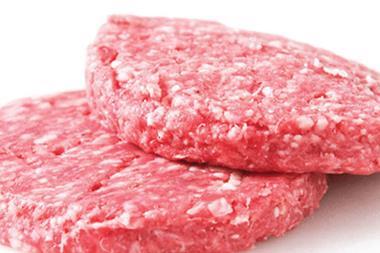






No comments yet